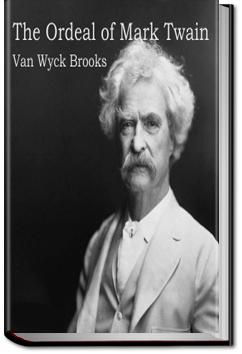UNLIMITED Audiobooks and eBooks
Over 40,000 books & works on all major devices
Get ALL YOU CAN for FREE for 30 days!
The Ordeal of Mark Twain
Van Wyck Brooks
Book Overview:
This book analyzes the literary progression of Samuel Clemens and his shortcomings (which are debatable). Brooks attributes Clemens' increasing sense of pessimism to the repression of his creative spirit due largely to his mother and his wife.
This book analyzes the literary progression of Samuel Clemens and his shortcomings (which are debatable). Brooks attributes Clemens' increasing sense of pessimism to the repression of his creative spirit due largely to his mother and his wife.
How does All You Can Books work?
All You Can Books gives you UNLIMITED access to over 40,000 Audiobooks, eBooks, and Foreign Language courses. Download as many audiobooks, ebooks, language audio courses, and language e-workbooks as you want during the FREE trial and it's all yours to keep even if you cancel during the FREE trial. The service works on any major device including computers, smartphones, music players, e-readers, and tablets. You can try the service for FREE for 30 days then it's just $19.99 per month after that. So for the price everyone else charges for just 1 book, we offer you UNLIMITED audio books, e-books and language courses to download and enjoy as you please. No restrictions.
In all his environment, then, we see, there was nothing to assist in the transformation of an unconscious artistic instinct, however urgent, into a conscious artistic purpose. "Dahomey," wrote Mark Twain once, "could not find an Edison out; in Dahomey an Edison could not find himself out. Broadly speaking, genius is not born with sight but blind; and it is not itself that opens its eyes, but the subtle influences . . . Read More
Try now for FREE!

"Love your service - thanks so much for what you do!"
- Customer Cathryn Mazer
"I did not realize that you would have so many audio books I would enjoy"
- Customer Sharon Morrison
"For all my fellow Audio Book & E-Book regulars:
This is about as close to nirvana as I have found!"
- Twitter post from @bobbyekat


